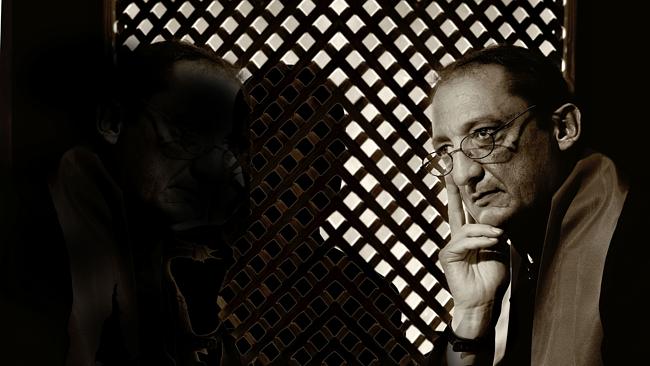Priests Must Tell US What They Know
By David Penberthy
IT IS difficult to imagine a darker scenario. Two adult men having a private conversation in which one reveals he has perpetrated sickening acts of sexual violence against a child, with the second agreeing that he will take the manís secret to the grave. A dark scenario and under Australian law, a wholly legal one. Over the past few months there has been a lot of talk, fuelled in large part by the abject behaviour of radical Islamists, about how in a secular society such as ours the law should trump God every time. There were those two ratbags in a Sydney court last year who refused to stand for the judge, saying the only authority they recognised was Allah. Whatever. Those men were denounced for their actions and rightly so, with the NSW Attorney-General investigating the application of contempt laws in that case. If Australia is going to be consistent on this issue it seems bizarre that our laws currently doff their caps to the strictures of the Catholic Church when it comes to the question of information obtained in the confessional. We can tut-tut about our rattier Muslim friends not respecting the primacy of law, yet when it comes to the Seal of the Confessional, we have the perverse situation where every state of Australia has deliberately structured its laws to run second to a theological tradition which places children at risk and lets bad people reoffend. This week one of the most senior Catholic priests in Australia, Archbishop Peter Wilson, was charged with allegedly concealing allegations of child sexual abuse by the convicted paedophile priest James Fletcher in the Newcastle-Maitland diocese in the 1970s. I offer no comment on the manís guilt or innocence; he is innocent until proven guilty. They are allegations and the court must be allowed to hear the matters without prejudice. Two things should also be noted: that he has strenuously claimed his innocence and that he has been regarded by many as a champion of justice for child abuse victims by reopening cases of past abuse. The point I would make is that in any such case where a priest discovered shocking information through the confessional, he is either under no obligation to pass it on, or has a statutory right not to pass it on. Not to the police, not to senior clergy, not to the affected family, but to sit on it until his dying day. Indeed, his oath is to not break the confessional seal. The term used in the child protection sphere is mandatory notification. The people who are required by law to pass on such information are called mandatory notifiers. As is so often the case in this shambolic federation of ours, the laws vary from state to state in terms of which professions are listed as mandatory notifiers. Police, teachers and general practitioners are mandatory notifiers in every state; in some states, dentists and pharmacists are included; social workers and child care workers too. In the state of South Australia priests are listed as mandatory notifiers, with the explicit proviso that they are exempt from the requirement if they obtain the information in the course of a confession. So we have a situation where in almost every state, priests are under no obligation to pass on information relating to criminal acts against children and in one state, SA, the parliament has been so exceedingly kind as to reassure the clergy that they can keep it a secret anyway. Itís a three-way conversation between two blokes and, apparently, God. It is a dangerous joke. The Australian Anglican Church has taken some tentative steps (and in real terms, so far ineffectual ones) towards abolishing the confessional seal. At its meeting last year, its ruling body, the General Synod, declared that the seal of confession would no longer apply to serious offences including child abuse or any other crime punishable by a sentence of five years or more. The change hasnít taken effect yet because the nationís 23 dioceses must vote on it individually and itís a bit tokenistic anyway because confession is not part of the modern Anglican tradition. The leadership of the Catholic Church has resisted all attempts to break the confessional seal. In a sick contrast, Canon Law (the laws governing the church) holds that the punishment for any priest who breaks the confessional seal is immediate excommunication. No such punishment exists if youíve been caught interfering with children. It is bad enough that institutions which are meant to be guided by nothing other than love and charity have done such an abysmal job of recognising and reporting evil in their midst. In the context of the confessional, it is worse that our parliaments have condoned that silence, even enabling it with a special exemption which shows that in our secular country, God can still call the shots. I am sure some Catholics will read this article as a Catholic Church-bashing exercise; it is not intended as such. The perpetrators of abuse within the church have been a very small, but very evil minority. Iíd speculate that the good men who answer the call may feel liberated from the shackles of having to remain shamefully silent on acts which deserve judgment on earth as well as in heaven. Priests should absolve such a sin of a criminal nature only if the bloke who committed it is man enough to dob himself in to the authorities as well. And while no one can speak for God, I doubt whether a kind and loving God would accept a manís confession in the afterlife if he doesnít have the backbone to ífess up in this one.
|
.
Any original material on these pages is copyright © BishopAccountability.org 2004. Reproduce freely with attribution.
